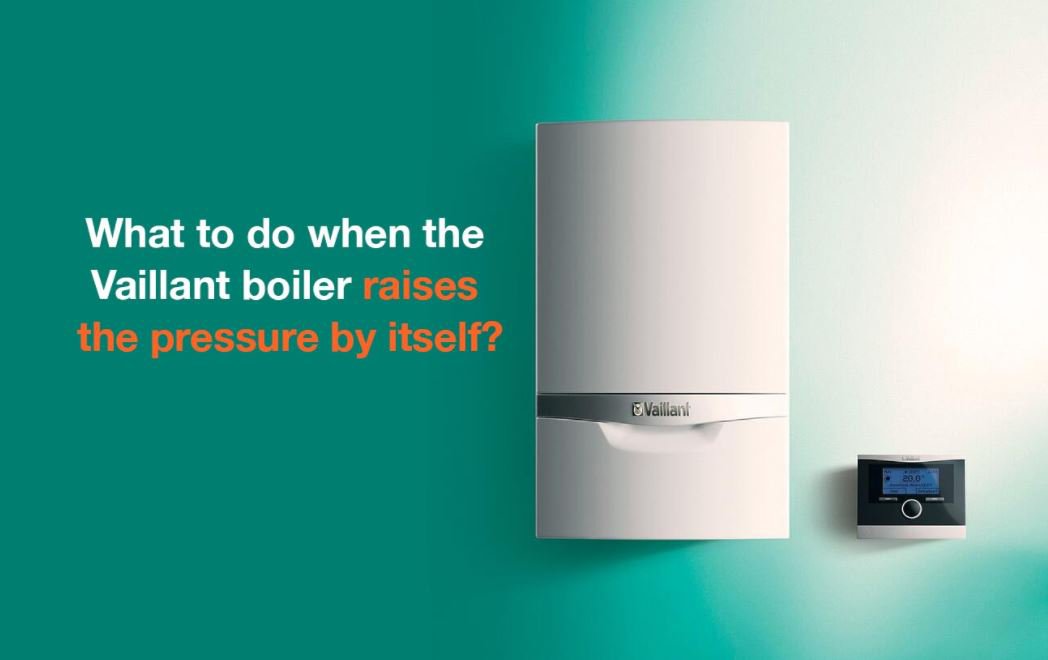When the Vaillant boiler rises the pressure on its own, this might be due to different causes. In this article we will analyze the reasons why the Vaillant boiler rises pressure on its own, as well as effective solutions to fix the issue.
First things first: What pressure should the Vaillant boiler have?
Boilers, no matter which brand, have very similar designs and components, so they all work in pretty much the same way. So the question in the title could well be put simply: How many bars of pressure should a boiler have?
However, as we are talking about pressure in Vaillant boilers, let’s answer the question checking the guidance of the manuals of this brand. According to the manual of the Vaillant Ecotec Plus, for the boiler to work properly, the filling pressure when the heating system is cold should be between 1 and 2 bars.
Click here to download the manual directly from the Vaillant official site
Low pressure is defined as a pressure lower than 1 bar (especially if it is lower than 0.5 bar), while high pressure is defined as a pressure higher than 2 bar (especially if it exceeds 3 bar). In the event of extreme rises or drops, the boiler interrupts its operation, locks up and shows error codes on the display.
A Vaillant boiler rises the pressure on its own: causes and solutions
Any equipment working with internal pressure is liable to have its pressure rise higher than normal at some point or other. Boilers often display this behavior. But why does the boiler pressure rise? The pressure in a boiler can rise for many reasons. Let’s look at them one by one, with their respective solutions.
Routine overpressure: letting the water out
To some extent it’s normal for the pressure to rise. The universal solution for this is to let water out of the system. If the boiler or system has a drain valve, it should be opened until the pressure returns to normal.

Damaged and permanently open inlet faucet
The pressure rise in a boiler has to do with the water load, in the same way that the pressure drop has to do with a lack of water. If for some reason you forgot to close the inlet or filler tap after filling the system with water, or if the tap is faulty and does not stop filling water, logically the pressure will rise more than normal.
The solution to this is to make sure you always close the inlet faucet properly, or replace it with a spare if necessary.

CLICK HERE TO SEE THE FILLER VALVES ON SALE FROM SUNER
Punctured membrane in the expansion chamber
The expansion chamber is one of the main safety components of a boiler. It consists of 2 compartments, one of which is kept in contact with the system water, and the other is kept isolated from the water and filled with a gas (usually nitrogen). When the pressure rises in the boiler, the expansion chamber absorbs the overpressure and prevents the pressure from rising in the system.

So when the Vaillant boiler increases the pressure on its own, one of the causes to think about is that the expansion chamber has a perforated membrane and is not fulfilling its function of absorbing pressure surges, and that is why the system pressure rises.
The expansion chamber has more than one possibility of failure: the already mentioned that the internal membrane that divides the compartments is perforated or hardened, or that it has lost the gas that should fill one of the compartments. The air can be replaced, but if the membrane is broken, the expansion chamber may have to be replaced.
CLICK HERE TO SEE THE EXPANSION CHAMBERS ON SALE FROM SUNER.
Safety valve is malfunctioning
Each safety valve has a specific set point, i.e. a pressure level regarded as critical for the system, at which the safety valve automatically opens and lets water out until the pressure returns to normal and drops below the set point of the valve, at which point the valve also returns to its normal closed position.
As the function of the safety relief valve is to vent excess pressure, when the component malfunctions (ie. when it’s clogged or calcified and is no longer able to react to overpressure by opening), then the pressure rises in the boiler. Usually the solution for faulty safety valves is to replace them.
CLICK HERE TO SEE THE SAFETY VALVES ON SALE FROM SUNER.

Pressure rises when the heating is on but not when the DHW is on
Several users ask themselves a question caused by direct experience: “Why does the boiler pressure rise when I turn on the heating?” And this question implies another one: “Why does the boiler pressure rise when I turn on the heating but not when I turn on the hot water?”
The answer is that the heating system is closed and therefore prone to pressure build-up, while the domestic hot water (DHW) system is open and therefore does not build up pressure.
This means that detecting that the pressure rises with the heating but not with the hot water is a useful indication that the fault is mainly to be found in the heating system.

